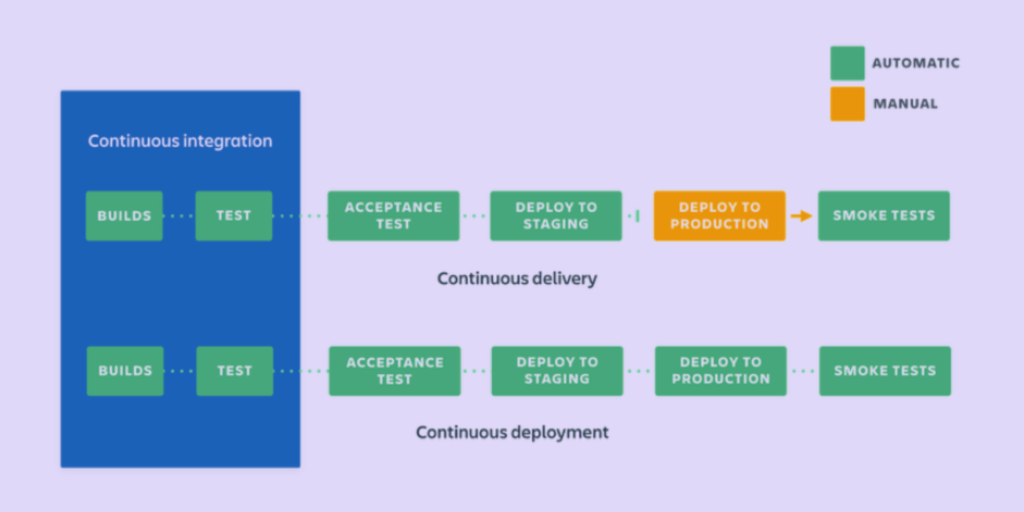In today’s fast-paced digital landscape, businesses are increasingly turning to cloud-native technologies to enhance their agility, scalability, and cost-efficiency. Among these technologies, Kubernetes has emerged as a game-changer in container orchestration. However, adopting Kubernetes can be a complex process that requires expertise and careful planning. This is where Kubernetes consulting services come into play, offering businesses the guidance and support they need to successfully implement and leverage Kubernetes for their cloud infrastructure.
Assessment and Strategy
The first step in any successful Kubernetes adoption is a thorough assessment of the current infrastructure and the development a comprehensive strategy. Kubernetes consulting services evaluate your existing systems, identify areas that can benefit from containerization, and determine the feasibility of migrating to Kubernetes.
Infrastructure Assessment
Kubernetes consulting services begin by performing an in-depth evaluation of your existing infrastructure. This assessment involves analyzing your current application architecture, identifying the dependencies between components, and understanding the performance characteristics of your workloads. Consultants also examine your current deployment processes, monitoring and logging practices, and security measures.
The infrastructure assessment provides valuable insights into the readiness of your applications for containerization. It helps identify any potential challenges or compatibility issues that may arise during the migration process. By thoroughly understanding your current setup, consultants can make informed recommendations on how to optimize your infrastructure for Kubernetes.
Kubernetes Adoption Strategy
Based on the findings from the infrastructure assessment, Kubernetes consulting services develop a tailored adoption strategy. This strategy outlines the roadmap for transitioning your applications to a Kubernetes-based environment, taking into account your specific business goals, technical constraints, and industry best practices.
The adoption strategy typically includes the following key components:
- Application Prioritization: Consultants help you prioritize which applications to migrate first based on factors such as business criticality, complexity, and potential benefits from containerization.
- Cluster Architecture Design: The strategy defines the optimal architecture for your Kubernetes clusters, considering aspects like scalability, high availability, and fault tolerance. It determines the number and configuration of nodes, the networking setup, and the storage requirements.
- Resource Allocation and Sizing: Consultants provide guidance on sizing your Kubernetes clusters and allocating resources effectively. They help you determine the appropriate CPU, memory, and storage requirements for your applications, ensuring optimal performance and cost-efficiency.
- Security and Compliance: The adoption strategy addresses security and compliance considerations, such as role-based access control (RBAC), network policies, and data encryption. Consultants ensure that your Kubernetes deployment adheres to industry standards and regulatory requirements.
- Monitoring and Logging: The strategy includes recommendations for implementing robust monitoring and logging solutions to gain visibility into the health and performance of your Kubernetes environment. This enables proactive issue detection and troubleshooting.
- Continuous Integration and Deployment (CI/CD): Consultants help you integrate Kubernetes into your existing CI/CD pipelines, enabling automated build, testing, and deployment processes. This streamlines your development workflow and accelerates time-to-market.

Continuous integration (CI) is the practice of automatically and frequently merging code changes into a shared source code repository. Continuous delivery and/or deployment (CD) is a two-part process involving the integration, testing, and delivery of code changes. Continuous delivery stops at delivering the code but does not deploy it automatically to production, whereas continuous deployment automates the release of updates directly into the production environment.
Collaboration and Alignment
Throughout the assessment and strategy phase, Kubernetes consulting services work closely with your team to ensure alignment between the proposed approach and your organization’s goals. Consultants engage with stakeholders from various departments, including development, operations, and business, to gather requirements and incorporate their feedback into the strategy.
This collaborative approach fosters a shared understanding of the Kubernetes adoption process and helps build consensus among team members. It also ensures that the strategy is tailored to your specific needs and takes into account any unique challenges or constraints faced by your organization.
Migration Planning
Once the assessment is complete and the Kubernetes adoption strategy is in place, the next critical step is migration planning. This phase involves creating a detailed plan for transitioning your applications to a Kubernetes-based infrastructure. Kubernetes consulting services play a vital role in guiding you through this process, ensuring a smooth and successful migration.
Application Suitability Analysis
The first step in migration planning is to determine which applications are suitable for containerization and deployment on Kubernetes. Consultants evaluate your application portfolio based on factors such as architecture, dependencies, and performance requirements. They identify applications that can benefit the most from the scalability, portability, and resilience offered by Kubernetes. Applications that are stateless, loosely coupled, and have well-defined interfaces are typically good candidates for containerization. Consultants also consider the level of effort required to refactor or re-architect applications to make them container-friendly. This analysis helps prioritize the migration order and ensures that the most suitable applications are tackled first.
Kubernetes Cluster Design
With the applications identified, the next step is to design the optimal architecture for your Kubernetes clusters. Consultants work closely with your team to determine the appropriate number and configuration of nodes, considering factors such as workload requirements, high availability, and fault tolerance.
The cluster design takes into account the specific needs of your applications, such as CPU and memory resources, storage provisioning, and network connectivity. Consultants also consider the scalability requirements, ensuring that the cluster can handle expected traffic loads and can scale horizontally as needed.
Application Containerization
Migration planning involves containerizing your applications, which means packaging them along with their dependencies into portable container images. Kubernetes consulting services assist in this process, helping you define the necessary Dockerfiles and container configurations.
Consultants work with your development team to identify the best practices for containerization, such as minimizing image sizes, properly managing secrets and configurations, and ensuring container security. They also guide you in defining the appropriate resource requests and limits for your containers, ensuring optimal resource utilization within the Kubernetes cluster.
Data Migration Strategy
If your applications rely on persistent data, migration planning must include a data migration strategy. Consultants assess your current data storage solutions and recommend the most suitable approach for migrating data to Kubernetes-compatible storage systems, such as persistent volumes or cloud-native storage services.
The data migration strategy considers factors such as data consistency, backup and restore procedures, and data security. Consultants help you plan the data migration process, minimizing downtime and ensuring data integrity throughout the transition.
Integration and Networking
Kubernetes consulting services also assist in planning the integration of your containerized applications with existing systems and services. This includes defining the necessary APIs, protocols, and communication patterns between components.
Consultants help design the networking architecture within the Kubernetes cluster, considering factors such as pod-to-pod communication, ingress and egress traffic, and network policies. They ensure that your applications can securely and efficiently communicate with each other and with external services.
Testing and Validation
Before the actual migration, it is crucial to thoroughly test and validate the planned deployment. Kubernetes consulting services help you define a comprehensive testing strategy that covers various aspects, such as functionality, performance, and reliability.
Consultants work with your quality assurance team to set up test environments that closely mimic the production setup. They assist in defining test cases, automating tests where possible, and monitoring the results. This iterative testing process helps identify and resolve any issues or incompatibilities before the final migration.
Rollout and Cutover Planning
Finally, migration planning involves defining the rollout and cutover strategy. Consultants help you determine the most appropriate approach, such as a phased rollout or a blue-green deployment, based on your specific requirements and constraints. The rollout plan includes steps for gradually transitioning traffic from the existing infrastructure to the Kubernetes environment, ensuring a smooth cutover with minimal disruption to end users. Consultants also help you define rollback procedures in case any issues arise during the migration.
By meticulously planning every aspect of the migration process, Kubernetes consulting services help you navigate the complexities and mitigate the risks associated with transitioning to a containerized infrastructure. With a well-defined migration plan, you can confidently execute the transition, knowing that you have a clear roadmap to guide you through each step of the journey.
Cost Analysis
One of the primary motivations for adopting Kubernetes is the potential for cost savings through improved resource utilization and scalability. However, estimating the costs associated with deploying and maintaining a Kubernetes infrastructure can be challenging. Kubernetes consulting services provide expert guidance in cost analysis, helping you understand the financial implications of your Kubernetes adoption.
Consultants assess your current infrastructure costs and compare them to the projected costs of running on Kubernetes. They consider factors such as cloud provider pricing, resource requirements, and operational overhead. By providing detailed cost breakdowns and ROI projections, consultants enable you to make informed decisions about your Kubernetes investment and optimize your cloud spending.
Kubernetes consulting services play a vital role in helping businesses navigate the complexities of adopting and leveraging Kubernetes for their cloud infrastructure. By providing expert assessment, strategic planning, migration guidance, and cost analysis, consultants empower organizations to unlock the full potential of Kubernetes and achieve their digital transformation goals.
Whether you’re just starting your Kubernetes journey or looking to optimize your existing deployment, partnering with experienced Kubernetes consultants can accelerate your success and ensure a smooth transition to a cloud-native future. Contact us today and learn from the experts.

